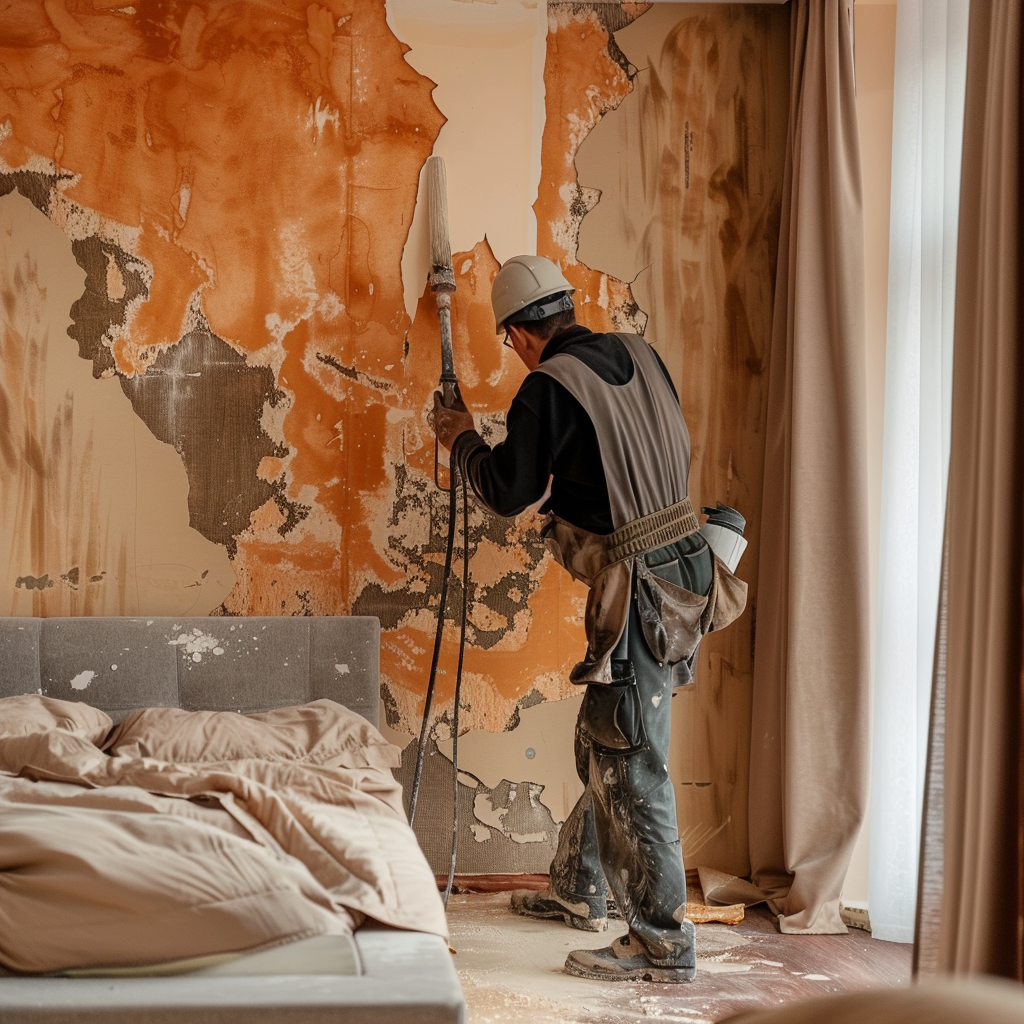Water damage is a common issue that homeowners face, whether it’s from a burst pipe, leaking roof, or natural disaster. Many people wonder if water damage will simply disappear over time without intervention. In this blog post, we’ll explore whether water damage can resolve itself and discuss the importance of addressing it promptly to prevent further complications.
Rapid Response Mold and Water Cleanup – Your Call, Our Action!
(772) 589-8026
Understanding Water Damage: Water damage occurs when excess water infiltrates various materials in your home, such as walls, floors, ceilings, and furniture. This excess moisture can lead to a range of problems, including structural damage, mold growth, and deterioration of belongings. The severity of water damage depends on factors such as the source of the water, the duration of exposure, and the type of materials affected.
Does Water Damage Go Away on Its Own? In most cases, water damage does not simply disappear on its own. While some minor water leaks may dry out over time, the underlying damage remains. Moisture trapped within building materials can lead to mold growth, decay, and structural instability. Even if the visible signs of water damage seem to improve, the underlying issues may persist and worsen over time.
The Importance of Prompt Action: Addressing water damage promptly is crucial to prevent further harm to your home and belongings. Here are some reasons why immediate action is essential:
- Mold Growth: Moisture provides the perfect breeding ground for mold spores to proliferate. Mold can begin to grow within as little as 24-48 hours after water exposure, leading to potential health hazards and costly remediation efforts.
- Structural Damage: Prolonged exposure to water can weaken building materials, compromising the structural integrity of your home. This can result in sagging floors, warped walls, and even collapse in severe cases.
- Health Risks: Water damage can create indoor air quality issues, as mold spores and other contaminants become airborne. Exposure to mold and bacteria can exacerbate respiratory problems and cause allergic reactions in sensitive individuals.
- Costly Repairs: Ignoring water damage can lead to more extensive and expensive repairs down the line. What may start as a small leak can escalate into a major renovation project if left unchecked.
Steps to Address Water Damage: If you discover water damage in your home, it’s essential to take immediate action to mitigate the problem. Here are some steps you can take:
- Identify and Stop the Source: Locate the source of the water intrusion and take steps to stop the flow of water, such as shutting off the main water supply or repairing a leaking pipe.
- Remove Standing Water: Use a wet/dry vacuum or mop to remove standing water from affected areas. Thoroughly dry out carpets, furniture, and other porous materials.
- Ventilate the Area: Increase ventilation in the affected area by opening windows, using fans, and running dehumidifiers to promote drying.
- Assess the Damage: Inspect the extent of the water damage and assess which materials may need to be repaired or replaced. Contact a professional restoration company for assistance if needed.
- Prevent Future Damage: Take steps to prevent future water damage by addressing any underlying issues, such as repairing leaks, maintaining gutters and downspouts, and ensuring proper ventilation in high-humidity areas.
While minor water damage may appear to improve on its own, the underlying issues often persist and can worsen over time. Prompt action is crucial to mitigate water damage and prevent further complications. By addressing water damage promptly and thoroughly, you can protect your home, belongings, and the health of your family. If you’re unsure how to handle water damage, don’t hesitate to seek professional assistance to ensure the problem is addressed effectively.

